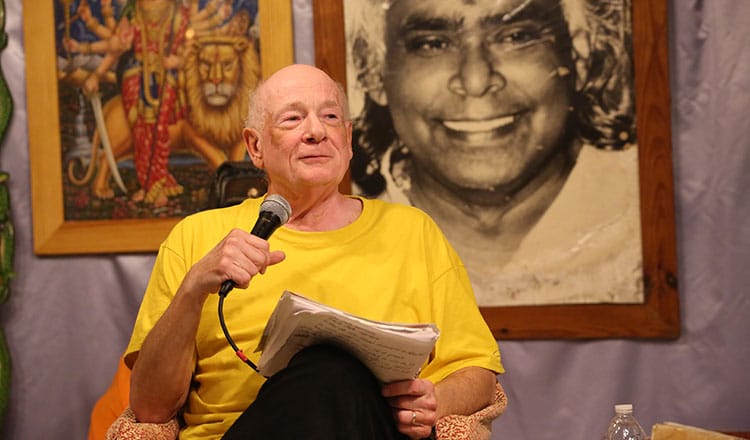Sivananda Bahamas Blog
Expand Your Horizons …
Our Blog
Raymond Moody on Near-Death Experiences
Every time Dr. Raymond Moody addresses a group on the topic of near-death experiences, there are folks in the audience who stand up to talk about the friends or loved ones with whom they’ve shared experiences around death. “They’re always, always there,” he says. “Sometimes one or two, but as many as six or seven people will recount similar stories.”
A philosopher and psychiatrist, Moody is an acknowledged expert on the phenomenon of near-death experience. He has documented hundreds of such events in his best-selling book, Life After Life. First published in 1975, it has sold more than 13 million copies and been translated into dozens of languages.
Moody’s interest in the subject was launched, he says, after reading the works of the Greek philosopher Plato. The young Moody had been thinking about studying astronomy, which had captivated him since age seven, but the first few pages of Plato’s Republic changed that.
“Plato became the inspiration. His notion of the afterlife woke me up,” Moody says. “He took it seriously but it never occurred to me that it could be a phenomenon of the modern world.” Then in 1965, when Moody was in medical school, he heard psychiatrist Dr. George Ritchie speak about his own near-death experience when he was 20 years old. This combination of factors propelled Moody to begin research on a subject that has become his life’s work.
Research has revealed that near-death experiences contain some of the following phenomenon: a sense of rising up and floating from the body; a sense of peace; being drawn through a tunnel at great speed to reach a bright light; a sense of feeling completely loved; witnessing a panorama of every act that has taken place in life; a reluctance to return.
Moody is a regular speaker at Sivananda Ashram Yoga Retreat in the Bahamas, and at each visit he charms with his easy eloquence and attentiveness to the audience. His recent visit in January was no exception. Over an evening satsang and several mid-day workshops, he recounted stories of near-death experiences and another phenomenon that he calls “shared death experiences,” incidents such as a sense of lifting up, or a shared life review, that take place at the time of a person’s death.
Even doctors in the operating room have had similar experiences, he says. In the case of one badly injured young man whose wife was killed in a car accident, the doctor who cared for him revealed that he had spoken with the man’s dead wife in the operating theater, to reassure her that her husband would not die.
“Why do we ignore discussions about end of life, about near-death experiences? People are afraid of death, they’re afraid it might be catching,” Moody jokes. “But really, it’s because they don’t want to see the larger context. In my opinion, the Hindus have it right. On a deep level, life is an illusion, a narrative experience. As soon as you’re out of the body, you’re on another path.”
But even though consideration of near-death experiences is now more acceptable, with reputable medical journals launching inquiries on the subject, there is a valid question that must be raised: how can we prove what we’ve never seen? “They say afterlife is nonsensical,” Moody says, “but so was the notion of the earth going around the sun. When Galileo proposed that, people responded by saying it was nonsense.”
This type of “nonsense” is an important aspect of the search for knowledge, he believes.
He recalls his early days as a philosophy professor in North Carolina, talking about his findings to students and then to growing numbers of civic clubs. At those early events, just as it happens today, there were always people who revealed experiences they had never shared, because they didn’t know it had happened to others.
These issues — near-death and shared death experiences, life after death — all connect us to an unknown. Bottom line, Moody says, “God is putting on a spectacular show and we all have a front row seat.”








